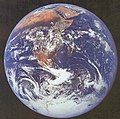Chem321:Problem Set 1
WORLD (Chemistry 321) |
| MAIN PAGE |
|---|
| Syllabus — Schedule |
| Welcome page Contact Dr. Walker |
| This week |
| Today's tasks — (tomorrow) |
| Course units 1 - 2 - 3 - 4 - 5 - 6 - 7 8 - 9 - 10 - 11 - 12 - 13 - 14 |
| Moodle site |
|
|
| Course content |
| Assignments Paper - Acme - 1 - 2 - 3 - 4 - 5 |
| Practice problems |
| Discussions |
|
|
| General wiki help |
| Basic editing Create an account Protocols Tutorial Demo, for practice |
First assignment for 2015.
Please type up your answers in Microsoft Word, Word Perfect, OpenOffice/LibreOffice Writer or RTF file format, and email to me before midnight on Monday, July 13th, 2015. Do not post your answers on the wiki. All answers should be in YOUR OWN WORDS, except for a few direct quotes (given with attribution).
- Explain briefly the meaning of the following terms: Sustainable development, Agenda 21, democratic socialism, DJSI (a stock market index), the London Array, Industrial Revolution, Externalities, Triple Bottom Line, Tragedy of the Commons.
- (~100-150 words) What targets were set for 2030 for China,* following talks between President Obama and President Xi Jinping in November 2014? Why do some scientists believe that 2030 is too far in the future?
- (a)(~200 words) Present some main arguments given by "climate realists" such as Marc Morano to show/claim that climate change is not real, and any changes are not linked to carbon dioxide levels.
- (100-200 words) On p4 of Hill, equity is given as an essential component of sustainable development. Explain why.
- (200 words) Explain Malthus's hypothesis on population growth. Have his predictions come true? Explain.
- (100-200 words) Are there limits to economic growth? Explain your answer.
- (300 words) Compare Naomi Klein's view with that of Richard Stroup regarding how capitalism intersects with the environment. Point out what you would see as a flaw in either one of these arguments.
- (~200 words) Taking into consideration your answers to the previous two questions, give your own hypothesis for effective, sustainable development. Do you think Stroup's free-market approach is the most appropriate, or Bjorn Lomborg's view, or should government be more involved - if so, how? Do not just give your "feelings," you must try to argue your case rationally using scientific evidence (where possible) to support your hypothesis.
*In this course, "China" refers to the People's Republic of China, excluding Taiwan, unless otherwise stated.
